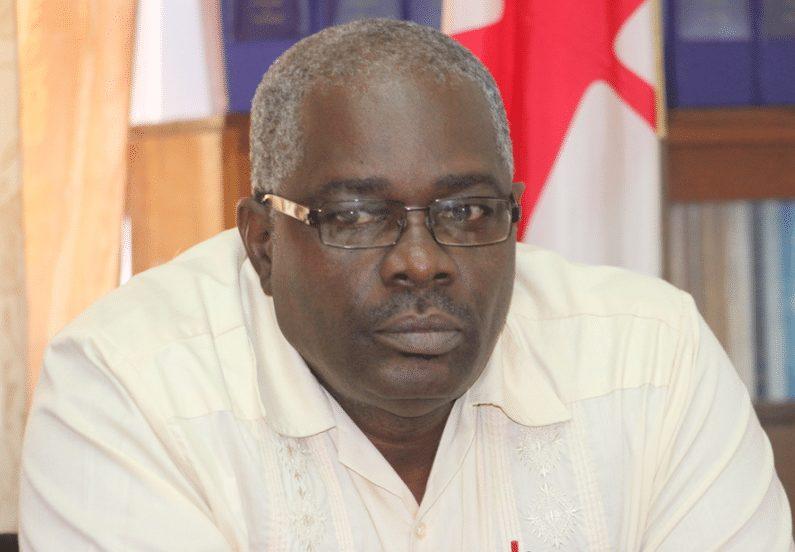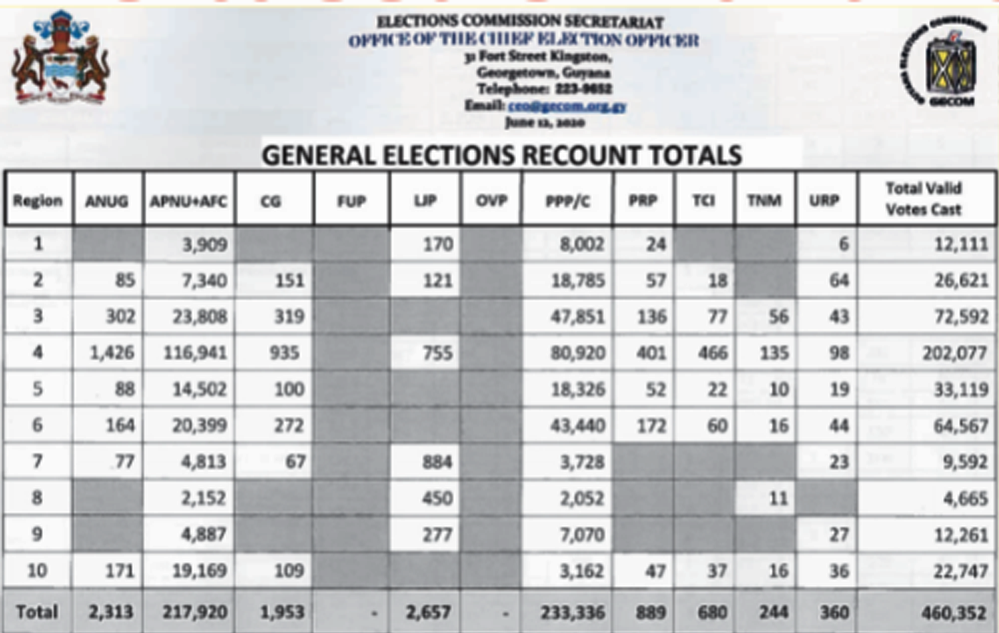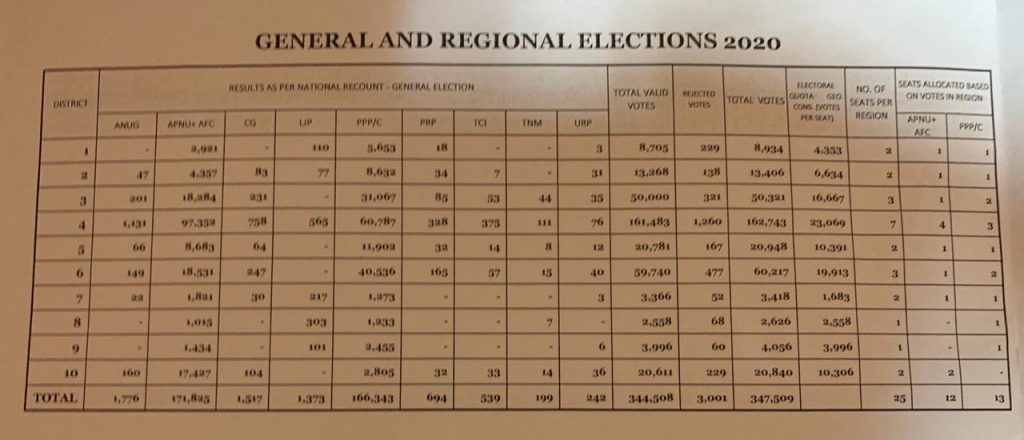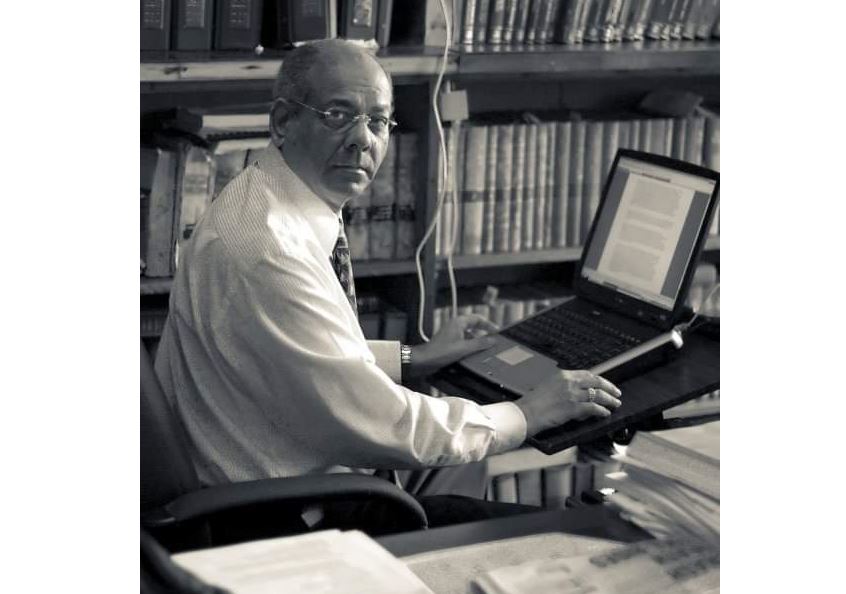By Neil Marks
Former Speaker of the National Assembly Ralph Ramkarran on Wednesday begged for the intervention of the Caribbean Court of Justice (CCJ) to settle Guyana’s four-month-old elections crisis by setting aside a controversial decision of the Court of Appeal which effectively led to a reversal of the results of the elections in favour of the Coalition APNU+AFC.
But the country’s Attorney General Basil Williams, through his attorney Justin Simon, a former Attorney General of Antigua and Barbuda, argued that even if the Court of Appeal was wrong, its decision cannot be questioned by the CCJ.
“It has been four months now; the people of Guyana need relief from this torment,” Ramkarran stated in his appeal to the panel of five judges of the CCJ. His argument was that the matters raised belong to an elections petition in the High Court and not the Court of Appeal.
The applicant in the case, Eslyn David, argued that in the matter that was taken before it, the Constitution dictates that its decision is final and cannot be inquired into by any other court.
Justice Adrian Saunders, the President of the Court asked David’s attorney John Jeremie: “…you see nothing wrong with the Court of Appeal usurping what the Constitution says fall under exclusive jurisdiction of the High Court, and itself ruling on that matter and there is nothing that anybody can do about it?”
Justice Jacob Wit asked Senior Counsel Simon what his thinking was if it was found that the Court of Appeal made a silly decision.
Justice Wit wanted to know if that should be the end of the matter, even if the decision is absurd and crazy. Simon said it would be.
“This court (the CCJ) has no jurisdiction to trespass on that,” Simon asserted.

The CCJ will rule next Wednesday in the case brought before it seeking to quash the Court of Appeal decision to interpret Article 177 (2) of the Constitution. The Court of Appeal in a 2-1 decision had ruled that when the Constitution determined that it is the party with “more votes are cast” wins the elections what the Constitution means is “more ‘valid’ votes are cast.”
The two judges – Dawn Gregory-Barnes and Brassington Reynolds – saw the need to insert the word “valid” because in their view the legal order that allowed for a national vote recount undertook to resolve questions regarding the credibility of the elections.
The ruling by the Court of Appeal set off a perverse interpretation by the caretaker Coalition APNU+AFC which claims that only the votes Chief Elections Officer Keith Lowenfield deems to be valid, or votes which it did not question during the national vote recount, should be used to determine the basis of the results for the elections.

The fears of the opposition that Lowenfield would actually use the decision of the Court of Appeal to produce a fraudulent report was confirmed when he, Lowenfield, on June 23 wrote a letter to the Chairman of the Guyana Elections Commission (GECOM) to say that he acted under the guidance of the Court of Appeal decision and prepared a report of the results of the elections with the necessary allocation of seats.
Lowenfield’s report was scandalous and a betrayal of the instructions he had received from the Chair of the Elections Commission.

He was instructed to prepare a report based on the results of the national vote recount, which showed the PPP beat APNU+AFC by 15, 416 votes. But Lowenfield’s June 23 report dumped 115,000 votes and handed a win to APNU+AFC a win with 33 seats in the 65-seat National Assembly. To this date, no one knows how he arrived at his new figures.

Ramkarran argued that the CCJ should not simply set aside the decision of the Court of Appeal, but that it should go a step further and rule that the elections report submitted by Lowenfield on June 23 should also be thrown out.
He also begged the court to declare what are the valid results of the elections. The Court was presented with the ten certificates of the national vote recount which were all signed off as valid by GECOM workers under Lowenfield’s own supervision. The ten certificates, which clearly have the words valid on them, were displayed on live TV for the public to see. So just about anyone could add up the figures from the ten certificates and determine who the winner of the elections was.
The winner was the PPP and Irfaan Ali should be declared and sworn in as President. But Lowenfield’s report aims to do otherwise and to have David Granter sworn in instead.
The recount showed that there were 460, 352 valid votes with the PPP securing a majority of 233, 336 votes. That would make for 33 seats in the National Assembly.
The Coalition APNU+AFC received 217, 920 votes and gained 31 seats.
Together the parties ANUG, LJP and TCM received 5, 214 votes and would get the other seat to complete the 65-seat National Assembly.
But Lowenfield’s June 23 report reduced the total votes cast to 344, 508, slashing 115, 844 votes with no explanation.
From the new figure he conjured up, Lowenfield assigned the Coalition 171, 825 votes and 33 seats in the National Assembly. He gave the PPP 166, 343 and 31 seats in the National Assembly. For ANUG, LJP and TCM he slashed their votes also, giving them 5, 214 votes but maintaining their one seat in the legislature.

“This case is about the elections and this case is about the counting of the votes,” Ramkarran argued, “and everything points to the results of the recount being valid.”
He said the elections are a cause for disputation and unless the CCJ takes a position on what valid results are and kicks the elections can down the road without going down the road itself, then the issue of the Guyanese elections will be before it again.
As such, he called on the Court to pronounce on the elections results in Guyana and bring the matter to an end once and for all.
Mr. Reginald Armour, the attorney for the Coalition’s Campaign Manager Joseph Harmon, argued vociferously before the Court that what happened after the Court of Appeal ruling should not be brought up at the CCJ because the question before the CCJ had nothing to do with facts but it has to do with whether the Court of Appeal had the jurisdiction or power to hear and determine the matter taken to it.
But Douglas Mendes, attorney for the Opposition Leader, argued that the facts had to be presented because the Chief Elections Officer submitted his report to the GECOM chair the very day after the Court of Appeal ruling and in fact cited the ruling of the court as the basis for his report.
Mendes further argued that Lowenfield should not have invoked the Court of Appeal ruling in doing what he did because there was a hold on the Court of Appeal’s order and that stay remains in place until the CCJ determines the appeal brought before it.
The Attorney General Basil Williams argued that the Court of Appeal was correct in ruling the way it did because there was massive electoral fraud and evidence was presented to support this. But Mendes quickly rebuffed this, saying that rather than evidence, all that was presented was letters from Harmon claiming fraud.
A high-level team from the Caribbean Community (CARICOM) which served as the scrutineers for the national vote recount, noted the claims of APNU+AFC but said they found no proof of electoral fraud.
The team said that APNU+AFC peddled those allegations so much so as to make them seem factual but they had “absolutely no evidence to substantiate the allegations.”
“This (the allegations) invariably and unfortunately led to a false narrative in the public domain that the elections were not credible and that massive electoral fraud occurred on poll day,” the CARICOM Team stated.
The leader of the Coalition, President David Granger, has so far refused to concede defeat, though his Prime Ministerial Candidate Khemraj Ramjattan did so and gave a farewell speech to his staff at the Ministry of Public Security.
Attorneys for the Opposition Leader argued that what the Court of Appeal did was to encroach upon the exclusive jurisdiction of the High Court to determine the validity of an election.
“This is by far the most important issue in this case since the Court of Appeal’s assumption of jurisdiction has far reaching and lasting effects on the landscape of elections and election law in Guyana and must be set right by this Honourable Court,” Mendes submitted to the CCJ.
He pointed out that the qualifications of the President are set out in Article 90 of the Constitution and the President is to be elected by the people in the manner prescribed by Article 177.
Article 177 provides that each list of candidates must designate a President and deems a vote for a list to be a vote for the Presidential candidate named in the list.
Where, as in this case, there are two or more Presidential candidates, the winner is deemed to be that person who is designated as President on the list in favour of which “more votes are cast … than in favour of any other list.”
The deemed winner is to be “declared by the Chairman of the Elections Commission acting only in accordance with the advice of the Chief Elections Officer, after such advice has been tendered to the Elections Commission at a duly summoned meeting.”
On the face of it, therefore, the election of the President under Article 177 can only be determined after the results of the election to the National Assembly are determined.
It is only when the number of votes cast for each list is determined, that it will be possible to identify the wining Presidential candidate, Mendes argued.
The advice of the CEO, the meeting of GECOM and the declaration by the Chairman are the formalities which give effect to the votes cast for the list as determined by GECOM.
Attorneys for the applicant Eslyn David argued that Article 177(4) gives the Court of Appeal “exclusive jurisdiction” to hear and determine any question as to the validity of an election of a President as so far as it involves the qualification of that person or the interpretation of the constitution.
As such, they argued that the decision of the Court of Appeal was not appealable and should not have reached the CCJ and so the CCJ has no jurisdiction to entertain the case.
The Attorney General argued similarly.
Mendes argued that no President has yet been elected and so the “exclusive” jurisdiction of the Court of Appeal does not apply.
He further noted that the applicant Eslyn David complained that GECOM decided that it did not have the authority to determine the credibility of the election, even though, as she claimed, the Order issued by GECOM established credibility as a criteria.
All of her complaints, Mendes noted, fall within the category of matters which fit an elections petition in the High Court; none of the issues raised, he said require an interpretation of the Constitution for resolution and therefore do not fall within the exclusive jurisdiction of the
Court of Appeal under Article 177(4)
As such, he argued for the case to be thrown out.













